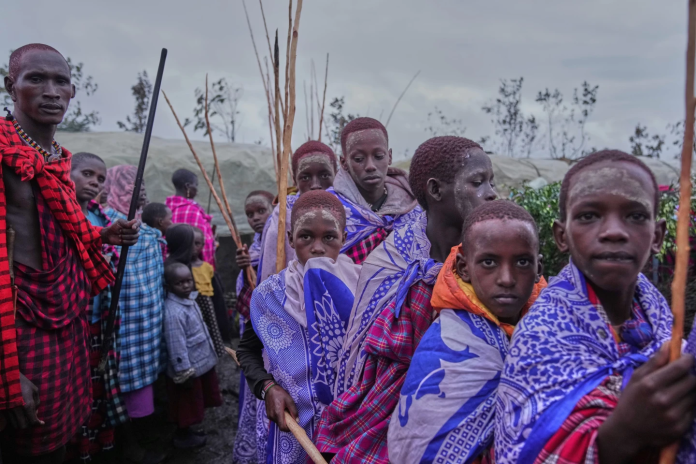Under the crisp dawn skies of Kenya’s Maasailand, 900 teenage boys wrapped in vibrant shukas gather for a ritual that has defined their culture for centuries, according to AP News.
The Enkipaata warrior training camp, a once-in-a-decade rite of passage, has returned to Olaimutiai in Narok County, blending ancestral traditions with pragmatic adaptation.
Selected from Maasai communities across Kenya and Tanzania, the boys endure a month of austerity: sleeping on forest floors, fasting, and mastering discipline. For 16-year-old Isaac Mpusia, the abrupt summons to camp initially sparked anxiety.
They didn’t tell me [where we were going] and I was worried at first. When you come here, you learn a lot of things that were done by our parents. You have to have discipline.
He embraced the honour of joining a lineage once marked by lion hunts and year-long seclusion. Today, the curriculum prioritises leadership and cultural values over combat, with sticks replacing blades and school holidays dictating the condensed timeline.
Education now supersedes tradition for many families. Joyce Naingisa, a Narok North County minister, notes the shift: her husband sacrificed a year of schooling for his warrior training, but her son’s generation balances rites with classrooms.
My husband dropped out of school for a whole year so that he could attend. But now, they are the leaders, and they know the importance of education. So these boys will undergo this rite of passage, but we still make sure that they go to school.
The graduation ceremony – a bull slaughtered, blessed, and shared – epitomises unity. Yet this new generation, dubbed Iltaretu, faces unprecedented trials: Kenya’s 1.2 million Maasai grapple with vanishing grazing lands, urban expansion, and climate extremes.
Amid the challenges, the camp sows seeds of hope – literally. Fifty seedlings and 150 saplings, blessed by elders, now root beside the temporary settlement. Cultural chief Mosinte Nkoitiko, visiting from Tanzania, stresses resilience:
These children will be change-makers. That’s the message that we want to send to them. They are the ones facing these challenges, and we want them to know that they are not alone.
As the boys depart, bearing the Iltaretu name, their bond transcends borders. “When we meet in future, we shall know each other,” Mpusia reflects. For the Maasai, tradition evolves, but community endures.
